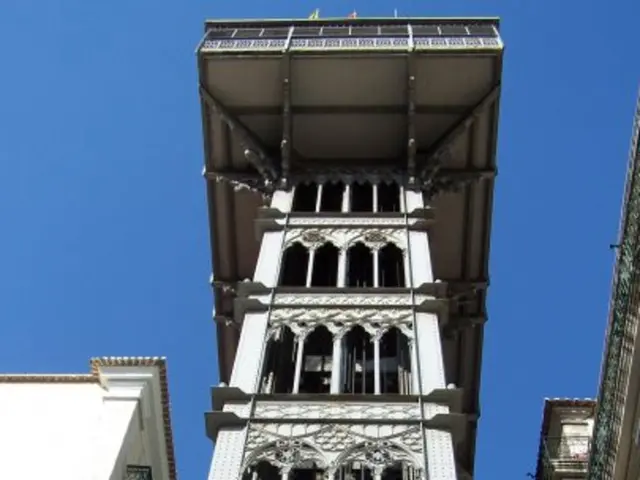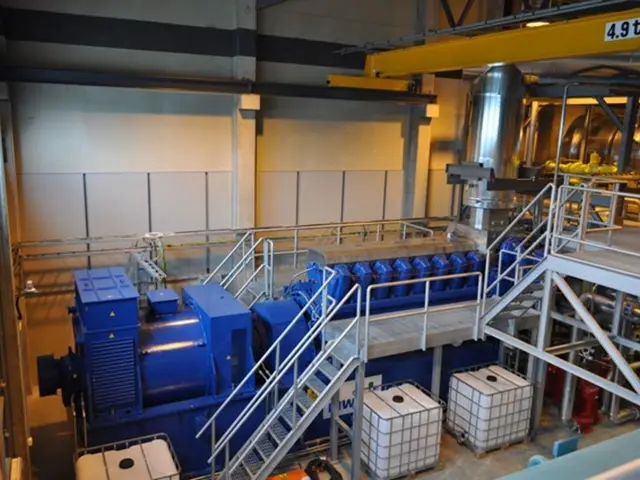In the regions of the Caucasus and Central Asia, imposing a modest levy on the affluent elite could potentially generate substantial income, according to a recently published report.
Chilling Out on the Rich Side: A Radical Approach to Collecting Billions for Climate Solutions
Witness the whirlwind! A fresh report from a high-profile group advocates for pinching pennies from the loaded pockets of the ultra-wealthy, promising a massive financial boost for countries straining under the weight of climate change in the Caucasus and Central Asia. This proposed tax may just be the shot in the arm these nations need to tackle global warming and combat poverty, only time will tell.
Surf's up on the wealthiest wave, because the report, titled Billionaires, Babies and Biodiversity: Subsidizing the Rich is Alienating the Earth', argues that a small tax on the top 0.5% of income earners globally could pool over $2 trillion - talk about a windfall! Get ready for seas of green, because the fabulous UK-based Tax Justice Network (TJN) penned this document, using Spain's wealth tax as a blueprint for their world-spanning model of taxing the super-rich.
The global stage is set for an existential dance between climate change, inequality, and cost of living crises, cries the report, "Climate chaos, social injustice, and high living costs all come with enormous financial demands." With a modest tax from the top crust of society's wealthiest individuals, these pressing issues could finally find the resources they need. The proposed levy would ask the richest 0.5% of each nation to pay taxes on assets valued beyond a predetermined threshold, from 1.7% to 3.5%, with a safety net to ensure the middle class remains unscathed.
So, where does that leave our dearest Caucasus and Central Asia? Their wealthiest states stand primed to welcome staggering amounts of revenue. In lavish Kazakhstan, over 61,000 citizens could be tagged for the wealth tax, with a minimum asset threshold of $819,381. Say hello to $3.7 billion in fresh revenue for Kazakhstan's government, money that could have swiftly restored deluged regions recovering from spring storms. Frayed nerves abounded as residence in affected areas protested the insufficient aid from the government in May.
Join us, folks, as we embark on a global tax safari, because the TJN plan could usher in a staggering $695 million for cash-strapped Uzbekistan, now juggling sizeable deficits as they try their hand at economic restructuring. The Caucasus' wealthiest state, Azerbaijan, would bring home over $241 million, while the poorest nation in the duo, Tajikistan, would bask in about $54 million.
The report pitches the moral responsibility of the super-rich to help lighten the load of battling climate change, "The wealthiest citizens pack a powerful carbon punch, both due to their lavish consumption habits and their investment choices." The TJN offers no concrete action plan to sway the world towards their visionary wealth taxation scheme, but warns that international transparency rules must tighten, and a Global Assets Registry be assembled. Will this pipe dream become reality in our near future? Only time will tell.
"Existing tax systems provide ample wiggle-room for the rich to indulge in international tax evasion, primarily by hiding their fortunes behind secret jurisdictions." Wave goodbye to veiled fortunes, because the proposal for a progressive wealth tax requires a push towards full transparency for all types of assets. If we're able to keep our eyes on the prize, this audacious plan could pump billions into the fight against climate change, offering a radically new path to a greener, more equitable future for all.
The report, "Billionaires, Babies and Biodiversity," suggests that a wealth tax on the top 0.5% of income earners globally could generate over $2 trillion, a potential windfall for combating climate change, especially in countries like Kazakhstan, Uzbekistan, Azerbaijan, and Tajikistan, which could receive $3.7 billion, $695 million, $241 million, and $54 million respectively. The proposed tax, targeting the super-rich and their carbon-intensive lifestyles, aims to provide a radical financial boost for addressing environmental issues associated with climate change.






